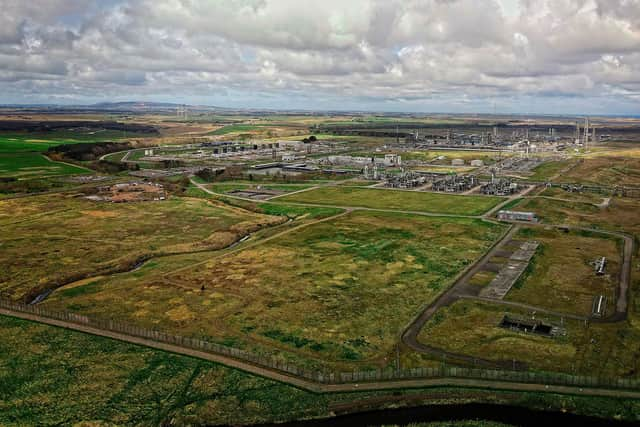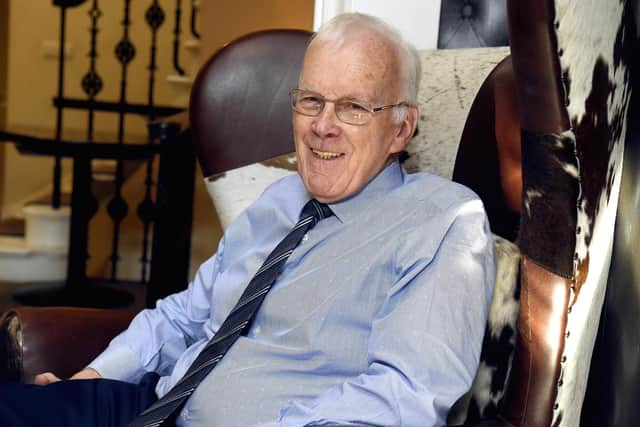Decarbonisation-focused Scottish Cluster 'could create 20,000-plus jobs in next decade'
The study has examined the employment impact of the decarbonisation-focused Scottish Cluster, which is led by a cross-sector group of Scottish industrial CO2 emitters, plus the Acorn CCS and Hydrogen Project Partners.
The report was commissioned by Acorn’s lead developer Storegga on behalf of the cluster, and its employment-creation predictions are seen as proof of how vital the Scottish Cluster is to meeting the net zero targets of both Scotland and the UK.
Advertisement
Hide AdAdvertisement
Hide AdIt has been calculated that the cluster, by deploying CCS, hydrogen and direct air capture (DAC) technologies in Scotland, could support an average of 15,100 workers between 2022 and 2050 – both directly and in the supply chain – while total such jobs are expected to peak at 20,600 in 2031.


Hydrogen production with an expected capacity of 3.7 gigawatts (GW) by the mid 2030s will account for the highest proportion of the direct and indirect jobs supported by the Scottish Cluster, according to the report.
The cluster has also submitted a bid to be part of a key UK Government CCS cluster programme, which will determine the industrial cluster that will receive a proportion of up to £1 billion.
The Scottish group has also highlighted how repurposing infrastructure from the oil and gas industry “reduces the cost and time involved in establishing a CO2 transport and storage system”. Overall, the cluster is expecting to cumulatively capture and store 25.5 megatonnes of CO2 by 2030 and nearly half a gigatonne by 2050.


The initiative aims to by 2030 include nine different UK CO2 sources. Eight of these should be operational by 2027 and encompass two of the gas terminals at the St Fergus Gas Complex, SSE and Equinor’s Peterhead Carbon Capture Power Station, around 1 million tonnes per year from the Ineos and Petroineos sites at Grangemouth, and the first large-scale DAC facility of its kind in Europe, targeted for North-east Scotland.
Ambitions
Additionally, it is anticipated that by 2050 the Scottish Cluster will expand further.
Alan James, director of Storegga, said the new report shows how crucial the Scottish Cluster is to meeting the UK’s net zero by 2050 pledge, but also for direct and indirect highly skilled employment in the years and decades ahead.
"The Acorn Project, which provides the critical infrastructure to the Scottish Cluster, can be rapidly scaled to meet demand... There is simply no time to lose.”
Advertisement
Hide AdAdvertisement
Hide AdOil tycoon Sir Ian Wood, chair of the Energy Transition Zone (ETZ), said: “Today’s report highlights the economic importance of fast-tracking energy transition projects such as Acorn CCS and Acorn Hydrogen.
"Supporting exciting new energy transition opportunities such as these is the primary reason for developing the [ETZ] in Aberdeen, which will play a pivotal role in establishing North-east Scotland as a global leader in energy transition and a future exporter of products, services, technologies and skills.
“We encourage the UK Government to be ambitious and maximise the level of green recovery investment in all UK CCS projects, in particular the Scottish Cluster, which has the added advantage of repurposing existing infrastructure.”
A message from the Editor:
Thank you for reading this article. We're more reliant on your support than ever as the shift in consumer habits brought about by coronavirus impacts our advertisers.
If you haven't already, please consider supporting our trusted, fact-checked journalism by taking out a digital subscription.
Comments
Want to join the conversation? Please or to comment on this article.
